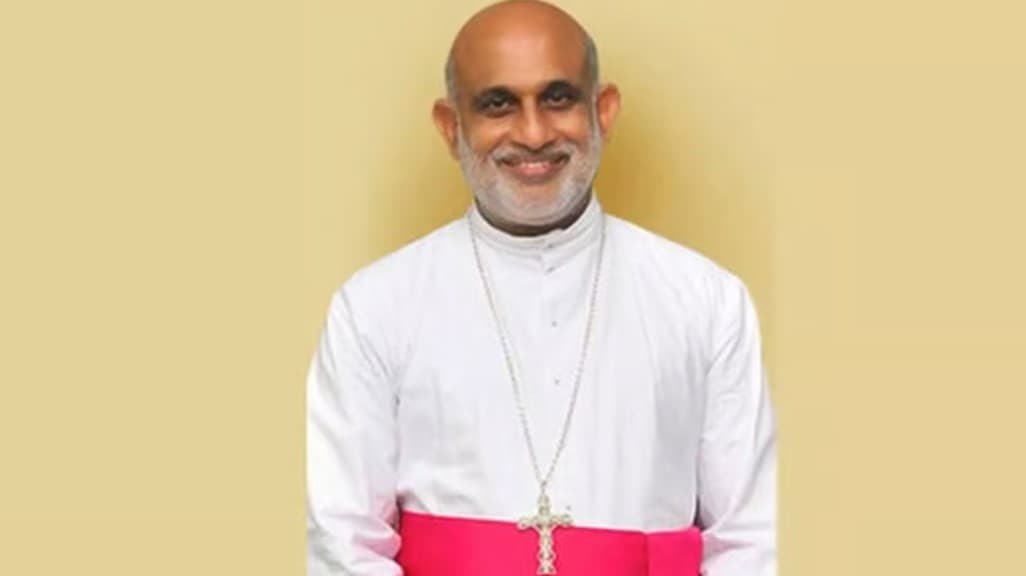MUMBAI – In a potential turning point in one of the Catholic world’s most protracted liturgical and administrative disputes, a new leader has been elected for India’s Syro-Malabar Church described as a “compromise candidate” and a leader who believes in “mutual dialogue.”
Raphael Thattil is set to be installed today as the new Major Archbishop of the Syro-Malabar Church, in a ceremony to be attended by the bishops of the Syro-Malabar synod, clergy, representatives of the lay faithful and religious from and other specially invited guests at the Major Archiepiscopal Curia of the Syro-Malabar Church, Mount St. Thomas, Kakkanad in southern India.
Thattil, 67, replaces Cardinal George Alencherry, 78, who led the Syro-Malabar Church from 2011 until his resignation was accepted by Pope Francis in late November.
The latter stages of Alencherry’s tenure were marred by major internal disputes within the Syro-Malabar Church, the second largest of the 23 Eastern churches in communion with Rome. Some of the tensions involved leadership styles and financial management, but the most visible concerned the style of celebrating the Mass, known in Syro-Malabar tradition as the Holy Qurbana.
A decision by the Syro-Malabar synod in 2021 decreed that Mass should be celebrated with the priest facing the congregation during the Liturgy of the Word, but facing the altar during the liturgy of the Eucharist. That decision drew stiff resistance in the Archdiocese of Ernakulam-Angamaly, the largest Syro-Malanar jurisdiction, where a wide swath of priests and laity insisted it was at odds with their post-Vatican II tradition of facing the people throughout the liturgy.
For the last two years, that dispute has led to deep divisions and angry public protests, among other things forcing the Cathedral of St. Mary to remain closed for the last two Christmas seasons.
The selection of the new Major Archbishop came just days after a group of priests in Ernakulam-Angamaly issued an open letter insisting that “the holy Mass versus populum is a natural outcome of the directives of Sacrosanctum Concilium of Vatican II and, since 1962 onwards, it is our practice to say mass versus populum, and pastorally impossible for us to replace it by synodal form.”
“In the present ecclesial scenario priests and people do not want any arrogant and self-imposing bishop to be their leader,” the priests wrote. “We pray that all our bishops be filled with the Spirit of God and read carefully the signs of time so that they will be empowered to choose the most suitable person as our Major Archbishop and also to find an amicable solution to the present liturgical crisis within our Church.”
Thattil’s election as Major Archbishop also follows a decision by Pope Francis earlier in December to accept the resignation of Archbishop Andrews Thazhath as the apostolic administrator of Ernakulam-Angamaly, replacing him with Bishop Bosco Puthur.
In his first message after being elected to the new post, Thattil appeared to send a signal of openness to reconciliation, calling on the Church to “stand together and work together.”
“Working together as a body is healthy. The archbishop wants to belong to everyone … if there is a deficiency, it will be resolved,” he said.
“I will depend on God’s guidance and the cooperation of bishops, priests and lay people to carry out my responsibilities,” Thattil said. “Jesus is the head of the Church, and all the others are parts of the body.”
Father Jose Vailikodath of the Archdiocesean Protection Council, which has played a lead role in the opposition in Ernakulam-Angamaly, told Crux that he sees the election of Thattil with “great hope.”
“He is a bishop who is always friendly with priests and people. As such, he is a person who believes in mutual dialogue,” Vailikodath said, expressing hope that Thattil will “see the present situation of Ernakulam-Angamali Archdiocese with a sense of reality and ability to analyze.”
“The focus of the new leadership should be on finding a solution to such sufferings that the archdiocese is experiencing, both spiritually and materially,” Vailikodath said. “If the pastoral mission continues in this direction, the cooperation of the people of God will be with the new Major Archbishop … It is not just a change of administration, it is a matter of addressing the legitimate needs of the people of God in the archdiocese.”
Father Paul Chittinappilly, a senior member of the Priests Council in Ernakulam and a member of the Archdiocesan Protection Forum of Priests, also expressed optimism.
“We hope Raphael Thattil will find an amicable solution to the liturgical crisis as well as other controversies playing the Church We hope he will keep to his personality of keeping good relations with everyone. He’s not fanatic about traditionalist or traditionalism,” Chittinappilly said.
“He seems to be a compromise candidate,” Chittinappilly said. “He can probably work better with the Permanent Synod Members who are the Archbishops of the Church. He has very good relationship with our Archdiocese. Many of our priests are his friends and admirers! So, he is in a better position to find a solution to the crises.”
Syro-Malabar Father Aji Puthiyaparambil, who was barred from saying Mass or taking communion in public under Alencherry, said of Thattil, “I think he has a pastoral sense and ability to listen to the people of God.”
“The Major Archbishop has the opportunity to be the first servant of the Syro-Malabar Church. It’s not an office to rule over the people of God like a CEO. Every problem of the Church can be easily solved if he approaches them through Jesus’ eyes,” Puthiyaparambil said.














